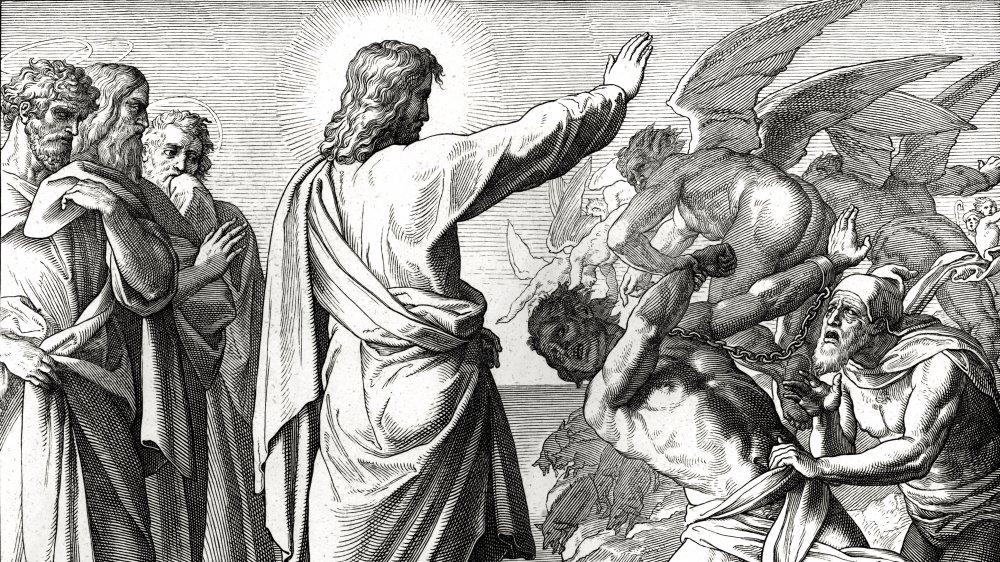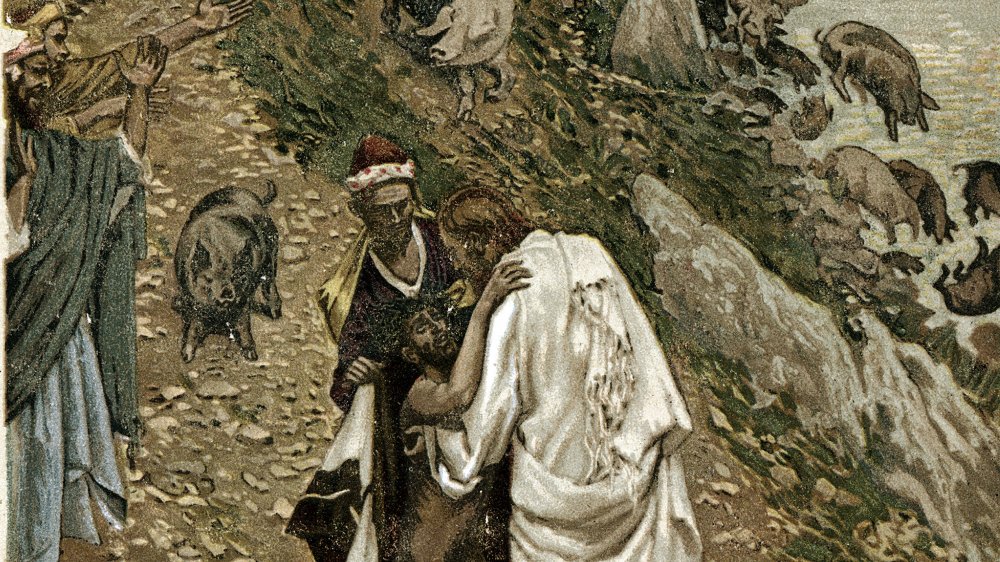The Origin Of Demons In Christianity
According to Verbal Kint in The Usual Suspects, "The greatest trick the devil ever pulled was convincing the world he didn't exist." Believers might argue that the devil also convinced a fair number of people that God didn't exist, either. The devil has the advantage in some ways, insofar as a lot of what most people imagine about demons and the like comes not from church teachings or even the Bible, but from poets and artists — John Milton's Paradise Lost, and Dante's Divine Comedy, online at Columbia University and elsewhere. From paintings. From imagination.
The devil in particular, and demons in general, are always good for a lively discussion in Christian circles. Some would go so far as to say that there's no such thing — what some would view as temptation, or as predilection to wrongdoing of whatever type, comes not from malevolent spirits but from human weakness. Call it a lack of discipline, or selfishness. (If you're The Church Lady, it could still be Satan.)
In broad terms, in the Christian tradition, the devil and demons are fallen angels — opponents of God. In the last book of the New Testament, the Book of Revelation, the story is told of these angels' war against God. They were defeated and cast out of heaven with their leader, Satan, and now work against God on Earth. They show up in the Old Testament as the serpent who tempts Adam and Eve; in the New Testament, they tempt Jesus in the desert. Jesus later confronts individuals who are possessed by demons, casting out those entities. For Christian believers, sin is real, and temptation comes from those fallen angels. It's no sin to be tempted; sin comes from giving in to the temptation.
For Christians, the power of God is always greater than the power of the devil
The idea of exorcism, practiced by the Catholic Church and other denominations, has been a fixture in pop culture almost since the beginning — remember that Jesus cast out demons — especially since publication of William Peter Blatty's novel The Exorcist in 1971, followed by the film in 1973. (The sequels, not so much.) A central tenet of Christian teaching is that while evil can be powerful, the strength of the devil and the demons is limited, and it is never more powerful than that of God.
In his book on the modern-day ministry of Catholic exorcists, The Rite, Matt Baglio quotes Father Francesco Bamonte, who said, "The Devil takes advantage of all the possibilities he has to act in the world, hoping to carry as many people as possible with him to eternal damnation. This is because of the hate he harbors for God and for mankind. He would destroy the good in the world in any possible way but we are protected by the action of God, Mary, the angels, and Saints, all of whom put limits on his actions."
A Christian would acknowledge that yes, there is evil in the world. But that same Christian would also acknowledge that yes, there is also great good. And that good is ever stronger than evil. Forever.

